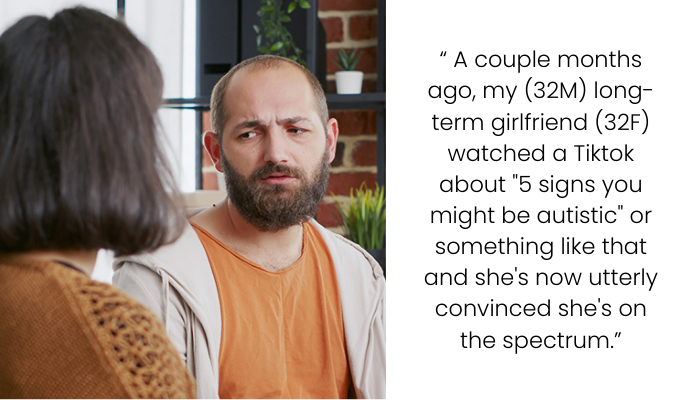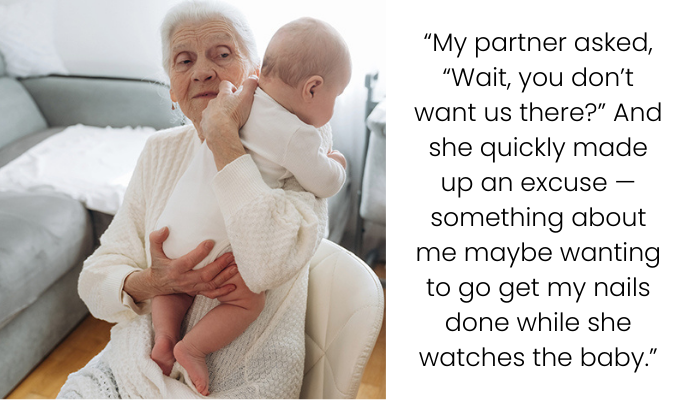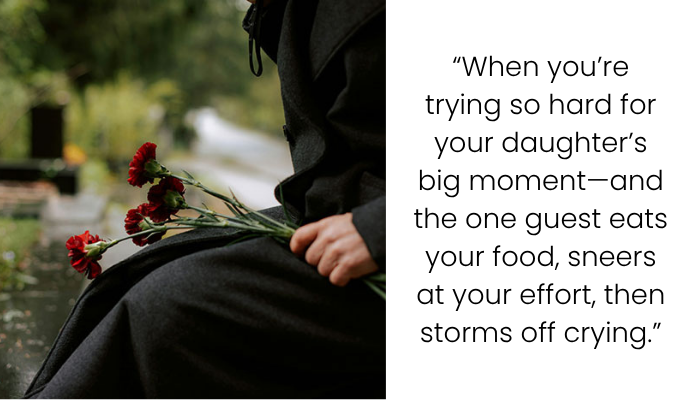They Called Child Services on Us A March of Revenge, Boundaries, & Surviving False Accusations
About a month ago, a social worker knocked on our door because someone had anonymously called child services on us. The complaint was wild — that my husband was an alcoholic and daily weed user, that I was so depressed I couldn’t get out of bed, that our house reeked of cat pee, that my sister lived with us, and that we keep “family away” (i.e. no contact with in-laws). We were in immediate panic — we know how these things can spiral.
But as we walked her through our reality — the no-contact boundaries with in-laws, the truth about our home, the care we give our kids — she didn’t seem alarmed. She didn’t look around our home in depth. Eventually, the worker told us she’d close the case. Tomorrow I’m calmer enough to post this. I don’t know what I expected — maybe validation, maybe justice, maybe some apology. Instead, I just want to document that we survived this, that we were deeply shaken, and that I will never allow those people near my kids again.
Sometimes, family can hurt us the most since they know exactly where to throw the punch

Soon after the poster’s husband’s grandparents and aunt came to visit their newborn, the couple found CPS on their doorstep













This was traumatic. It unsettled me in places I didn’t even know were fragile. But the more I’ve thought and read about false accusations to child protective agencies, the more I see patterns, supports, and lessons. I want to walk you through:
- Why people make revenge calls to child services
- How child services treat anonymous complaints & false claims
- What you can do when you’re the target of a false complaint
- How this shapes your boundaries, mental health, and future trust
1. Why Revenge Calls Happen — and How Common They Are
One of the more bitter truths is this: people weaponize systems. Especially in family disputes, people will turn to authority to inflict harm when they can’t win relationally. In your case, the in-laws being angry about not being invited seems like a strong motive to retaliate through an anonymous report. It’s not uncommon.
Studies have found that a small but significant portion of reports to child protection agencies are intentionally false or malicious, often as retaliation in custody battles, family feuds, or disputes. In one review, about 4% of reports were judged to be deliberately false allegations. cwrp.ca Many false reports are about “neglect” (messy house, poor hygiene, low supervision) rather than overt abuse. cwrp.ca Because neglect is more subjective, it’s easier for someone to make claims that can’t be easily disproven.

Also, anonymous callers are a known risk factor. One source observed that among all reports, credible ones hover around 30%, but for anonymous calls, that credibility rate drops to around 3%. The Imprint What that means: most anonymous reports are not strong, but agencies are forced to investigate anyway.
From policy reviews, the harm caused by false reports is serious. Families get dragged into stress, emotional trauma, legal costs, reputational damage, and sometimes children get unnecessarily removed or monitored. nyujlpp.org Because agencies operate on duty to investigate, they often must treat all reports seriously, even when evidence is thin. nyujlpp.org+1
So you are not alone in being targeted. What matters is how you responded — and you did well to stay calm, stick to facts, and push back.
2. How Child Services Handle Anonymous Complaints & Weak Evidence
Because agencies have legal and mandate constraints, they can’t simply dismiss a report just because it’s anonymous or seems petty. They have to “screen in” and investigate if there’s any plausible risk to children. Even shallow claims may require a home visit or interview.
But there’s nuance:
- Unfounded vs. substantiated: Just because a complaint is labeled “unfounded” or “unsubstantiated” doesn’t necessarily mean it’s proven false. It may mean the agency didn’t find enough evidence, or what they found didn’t meet their internal threshold. nccpr.org+1
- Burden of proof: In many jurisdictions, to terminate parental rights or forcibly remove children permanently, the state must meet a high legal standard (e.g. “clear and convincing evidence”) rather than just “preponderance of evidence.” (In U.S. law, in Santosky v. Kramer, the Supreme Court ruled that permanent removal of parental rights demands higher proof than ordinary civil cases. Wikipedia) While your situation was an initial investigation, not a removal case, you were still operating under the stress of that system.
- Caseworker discretion & bias: Because much of protective services work depends on human judgement, caseworkers’ beliefs and biases matter. When someone says “the home smells of cat pee” or “you keep family away,” those are subjective. The worker might either dismiss or lean in, depending on prior assumptions or how persuasive your presentation is.
Case studies show that families who can calmly present evidence (photos, records, witnesses) often fare better in these inquiries. perlmancohen.com+2nyujlpp.org+2 Also, agencies rarely prioritize deep home inspections for weak complaints if the initial visit raises no red flags. Sometimes they close the case when things look “normal.” In your case, that’s what happened.

A key point: time is your enemy. Evidence fades, witnesses forget details, the more the process drags on, the more stress mounts. That’s why immediate documentation is critical. Lawyers often warn that claims must be countered quickly. perlmancohen.com
3. What You Can Do When You’re Targeted by a False Complaint
First: don’t panic. You did well by being cooperative (within limits) and calm. Here’s a toolkit (some you’ve done already) for when this ever happens again:
- Document everything immediately: Take photos, videos of your clean home, of your daily routines, your children’s condition, transactions, etc. The more objective, the better.
- Gather witnesses: People who visited that day, neighbors, babysitters, others who can vouch for your environment and your parenting.
- Be transparent (within reason): Offer to open rooms, allow limited access — but set clear boundaries (e.g. you don’t allow unwanted visitors, especially those you don’t trust).
- Tell your side concisely: Prepare a timeline, point out the motivations for a false report (boundary conflict, revenge, etc.) — don’t ramble, but be firm.
- Call legal or advocacy help early: In many places there are nonprofits, attorneys, or parent advocates who handle false allegations. Their early involvement helps ensure your rights are protected.
- Don’t publicly trash the social worker or system — maintain professionalism. They have the power. You can vent elsewhere (like you’re doing), but in front of them keep composure.
- Protect your mental health: This is emotionally tolling. Therapy, journaling, support groups help.
Remember: a lot of cases like yours end without escalation if the evidence is weak. And that’s a good thing — but you must stay alert. Even after “closure,” keep good records.
4. How This Experience Changes Me (and Maybe You)
This incident shook me to my core — of course. It made me question everything: who can I trust, how safe are my boundaries, how easily a relative can invoke legal power, how fragile the line is between being a loving parent and being accused. But it also strengthened my resolve.
Here’s what I’ve internalized:
- Boundaries are nonnegotiable: Once someone breaks them, even slightly, the leverage they gain is dangerous. You have to guard your gatekeepers (who meets your kids, who visits).
- Control the narrative: Don’t let them tell your story. When accusations fly, having your own documented narrative is your shield.
- Trust your instincts: If someone is toxic or dangerous, they don’t deserve access. Even if “family therapy” seems like a path, sometimes it’s not safe.
- You are stronger than the system: It’s easy to feel powerless, but you do have agency — you just have to use it aggressively.
- This is a scar, not your whole identity: I will never forget how violated it felt, but I refuse to let this define me as a “bad mom” or “unstable home.”
Also, it’s taught me empathy for others who’ve had to defend themselves against false claims. Many parents live with the fear of being reported. Many never recover their trust in family or community. That’s part of my journey now — transforming my pain into awareness and maybe helping someone else.
Netizens were obviously shocked by the evil in-laws, and many opened up about such fake CPS calls












